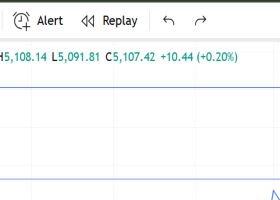
Pound to Par the Euro as UK Economy on Colission Course with Reality
“But in countries that are spending a lot more abroad than they are taking in, the current account is the point at which international economics collides with political reality.” - Atish Ghosh and Uma Ramakrishnan at the IMF.
The debate on Brexit has mainly focused on the potential economic and political repercussions for the UK and the EU alike.
However the heat has been turned up by one prominent investment bank who warns an exit from Europe could force the UK to come to terms with the consequences of its heavy reliance on foreign imports.
“From a macro standpoint, the main source of risk is the outsized UK current account deficit that currently features as one of the largest in the world,” says Themos Fiotakis, Strategist at UBS.
Copy signals, Trade and Earn $ on Forex4you - https://www.share4you.com/en/?affid=0fd9105
The current account is the difference between the value of exports of goods and services and the value of imports of goods and services.
A deficit then means that the country is importing more goods and services than it is exporting, and the gap is only growing when it comes to the British economy as the UK saw its current account deficit surge to record levels in the final quarter of 2015:
One would expect the pound exchange rate complex to be lower on the back of such dynamics as high import demand suggests the pound is being sold to purchase foreign exchange.
But, sterling has managed to remain elevated in the face of heavy import demand thanks to foreign investor inflows into areas such as property, stock markets etc. This ‘financial account’ creates enough demand for the pound to balance out any losses seen on the import-export front.
“When a country runs a current account deficit, it is building up liabilities to the rest of the world that are financed by flows in the financial account,” point out Atish Ghosh and Uma Ramakrishnan at the IMF in a paper addressing the potential problems associated with a trade deficit.
A Massive Shock Could Await
The question is - what happens to the UK economy when these inflows dry up?
Fiotakis argues that while the current account deficit is an issue whether the UK votes to leave Europe or not, the potential for a Brexit scenario brings the imbalance into sharp focus as financial inflows that typically balance the books are stalled on uncertainty.
“Such reversals can be highly disruptive because private consumption, investment, and government expenditure must be curtailed abruptly when foreign financing is no longer available and, indeed, a country is forced to run large surpluses to repay in short order what it borrowed in the past,” argue Ghosh and Ramakrishnan.
Brexit could trigger a confidence shock that stops the incoming flow of money that keeps the exchange rate, and economy, balanced despite the current account deficit.
Pound sterling is therefore most likely to be in the firing line.
The Currency Must Bear the Brunt of the Adjustment
UBS reckon that the British pound ‘nominal effective exchange rate’ has so far depreciated by about 8% year-to-date and therein more weakness to come:
“The currency could bear the brunt of the adjustment if markets focus even more on the imbalance. A range of outcomes is possible, but one risk is that GBP could then depreciate by a cumulative 30% on a trade-weighted basis.”
UBS say it is a “reasonable assumption” that the GBP could par the EUR, a view echoed elsewhere.
EUR/GBP Downside Risks:
- UK votes to stay in the European Union
- Brexit risks do not have lasting impact on economy
- UK economic activity and inflation accelerate
EUR/GBP Upside Risks
- UK citizens vote to leave the European Union
- As we approach the referendum date, uncertainty rises earlier than expected.
Is a Fall in the British Pound’s Value a Bad Thing Though?
Those who argue for a more balanced economy should see the silver lining that a sudden plunge in the exchange rate brings.
A weaker pound means UK exports suddenly depreciate in price - imagine supermarket prices suddenly fell by 30%, how would shoppers react? There would be a frenzy of bargain buying.
The same would arguably go for the UK’s exports; a cheaper pound would arguably boost our exports and close the gap.
Therefore it is not unrealistic to suggest that the UK economy could rapidly rebalance in favour of a more export-orientated model.
And, as the UK exports more so demand for sterling ultimately grow once more.


